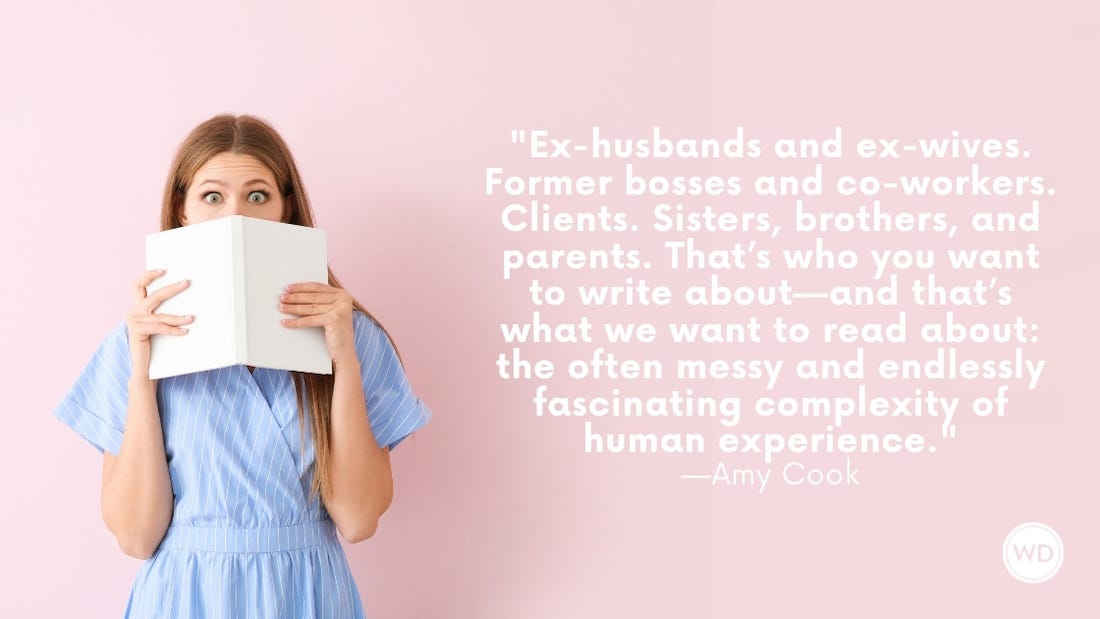Poets Helping Poets: Software for Poets?
Recently, I asked for some feedback on possible software for poets at the request of a poet friend of mine. Personally, I still write poems out with a pen on…
Recently, I asked for some feedback on possible software for poets at the request of a poet friend of mine. Personally, I still write poems out with a pen on paper before copying them over into Composition Notebooks. It's super lo-tech, but it's a system that works for me.
Here's what other poets had to say on the subject of software:
"I have used verseperfect in the past. Find it here http://www.bryantmcgill.com/Free_Rhyming_Dictionary/."
--John Nixon
*****
"Are poets not writers? Assuming your reader was referring to WD's software article in the Jul/Aug issue, there were several programs mentioned of use to poets, including Word Menu and Bullfighter (probably best for performace poets!), plus any of the submission tracking programs. Poets could presumably even make creative use of the programs focused on plot and character development, and the voice recognition software might be helpful for the overly page-bound scribes out there.
"If they're looking for software that will actually help them write a good poem, though, there thankfully is no such beast. Imagine the books of celebrity poetry flooding the shelves if there were?"
--Guy LeCharles Gonzalez
*****
"In response, this here is a fun bit of web-related poetry writing software:
"'tis a google poetry machine/robot/thing and can produce amusing, even occasionally helpful results."
--Nathan Hamilton
*****
"Well, there's RACTER - the poem-writing program Christian Bok describes in his essay 'The Piecemeal Bard Is Deconstructed,' which you can find here: http://www.ubu.com/papers/object/03_bok.pdf
"Don't know that it's commercially available, though, I must say."
--John Moore Williams
*****
"Though they're not specifically aimed at poets per se, it strikes me that the hypertext possibilities of Storyspace and HTML accord much more closely with poetry's nonlinear, allusive impulses than with narrative.
"You might also check out http://epc.buffalo.edu/e-poetry/.
"Also, Fashionable Noise: On Digital Poetics by Brian Kim Stefans discusses software he developed to generate random text with a poetry-like texture; an example of a long poem thus produced is included."
--Theo Hussein Hummer
*****
"I've used rhyming software before that poet Andrew Hudgins passed down to me. My computer crashed, though, and so I no longer have that software, but I'm sure there are plenty of good versions."
--Heather Kirn
*****
"I've been wanting to create a post about this, and I probably still will--but in the meantime, here's what I use: OneNote. It's part of Microsoft Office (and it's included in the Student and Teacher edition) which sounds like marketing--but then, I worked on the initial help for the very first version, so of course I'm biased.
"Why is OneNote cool? Because of the way it's organized. You set up Notebooks, Sections, and Pages. For poetry, I'll either start a section for a project (especially in the early phases, when I'm just capturing as many ideas and images as I can) or I'll set up a section for an individual poem. Then, I create a separate page for each draft. That way, if I cut everything out and decide I need it back, I just click one of the page tabs. I also have a section for free writes, and a general section where I might keep lists of places to send to or ideas for future poems.
"OneNote has fantastic Search, so if I remember some odd phrase that I typed six months ago, I can find it. The built-in flags are another way to save snippets for later. And there are possibilities I haven't explored yet, like using the Send to Word command to get poems ready for submitting or tracking contest deadlines in OneNote and using the task integration in Outlook to send myself reminders.
"This isn't software to help me become a better writer--it won't suggest verbs or slash adjectives (although it does have dictionary and thesaurus tools). But it's an organizational tool so that I can spend less time hunting and more time creating."
--Joannie Stangeland









